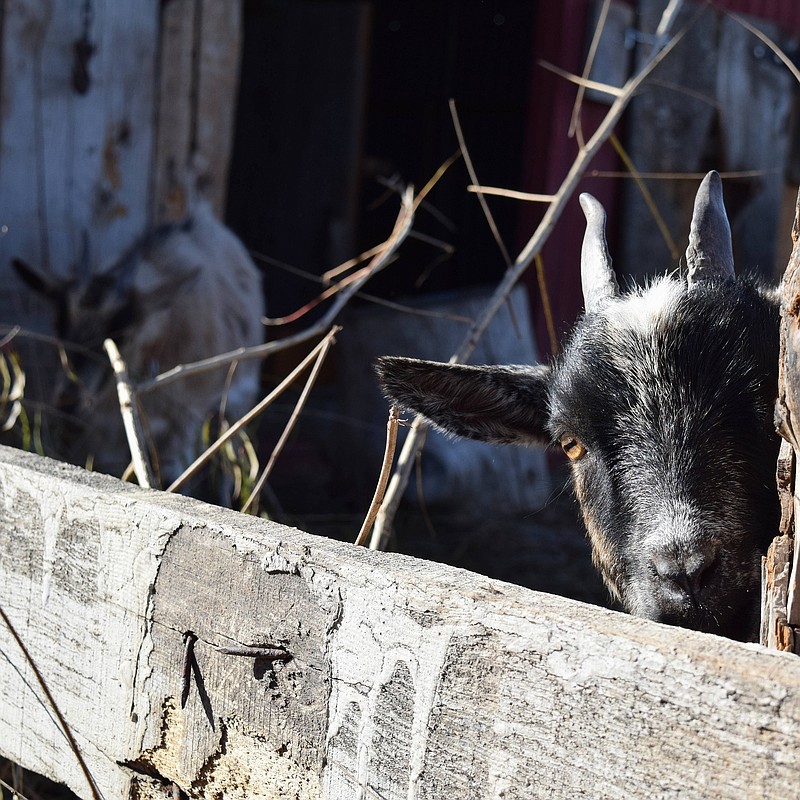Residents of the town of Signal Mountain with lot sizes of at least 2 acres can now keep miniature goats on their property.
Town council members voted unanimously April 22 to pass the ordinance, which had been tabled after passing on first reading at the council's Nov. 12 meeting.
As they are herd animals, there is a minimum of two for anyone wishing to obtain a town permit for the animals, councilors ruled. Those two must live on at least a 2-acre lot. One additional animal is allowed for each additional half-acre of land.
The animals must be fenced off from adjoining properties and rights-of-way, and enclosures must be a minimum of 500 square feet or 200 square feet per animal, whichever is greater.
Miniature, or pygmy, goats are less than 30 inches in height and weigh no more than 90 pounds at maturity.
Male goats must be neutered to be allowed in the town, though Veal said the town is not requiring females to be spayed in order to allow for milk production.
People must obtain a permit from the town before keeping small livestock on their property, and are subject to inspection to ensure they are complying with the regulations.
Permits are $35, with an annual renewal fee of $15. The miniature goat permit fees are the same as those for chickens established about a decade ago, said Veal.
Mayor Dan Landrum, who is also on the town's planning commission, said that body based the regulations and permit fees for small livestock on those used by similar towns.
The ordinance will expire after a year unless the council takes affirmative action again, similar to the town's chicken ordinance.
At the same meeting, Councilman Bob Spalding proposed that the town eliminate the annual renewal fee and annual inspections for keeping chickens.
"There's really been no complaints about keeping chickens," he said, adding that chickens produce minimal litter and a site inspection is conducted when the initial permit is obtained.
Veal said the town gets very few calls about chickens, and when they do, it's usually someone who wants to know what the town's rules related to chickens are in order to make sure they are in compliance with their own chickens.
Spalding said about a dozen people in the town legally own chickens, so the fees do not bring in much revenue. He said he feels it's intrusive for the government to have an open-door policy for people to have their property inspected short of a complaint.
"Often, rules exist because it keeps things in check," Landrum responded, adding, "$15 is not much. And it says that the town pays attention to the way this is done and we're going to pay attention if you do it incorrectly, and it keeps neighbors from being pitted against neighbors by having those kinds of regulations."
Vice Mayor Amy Speek and Councilwoman Susannah Murdock said they didn't have a problem with eliminating the annual chicken permit fees. Veal said he would need to make the change to the related ordinance before the council could vote on the change.
Email Emily Crisman at ecrisman@timesfreepress.com.
